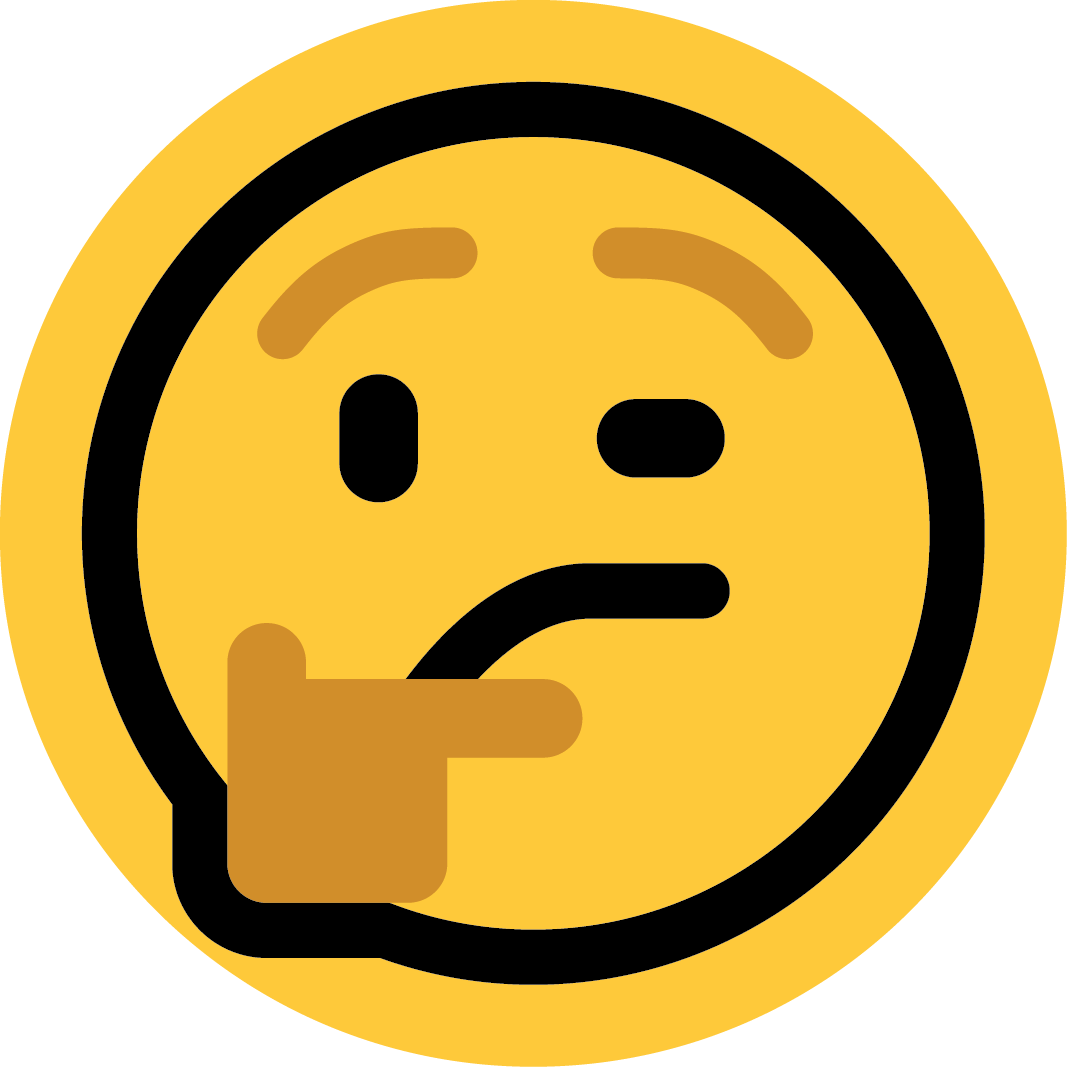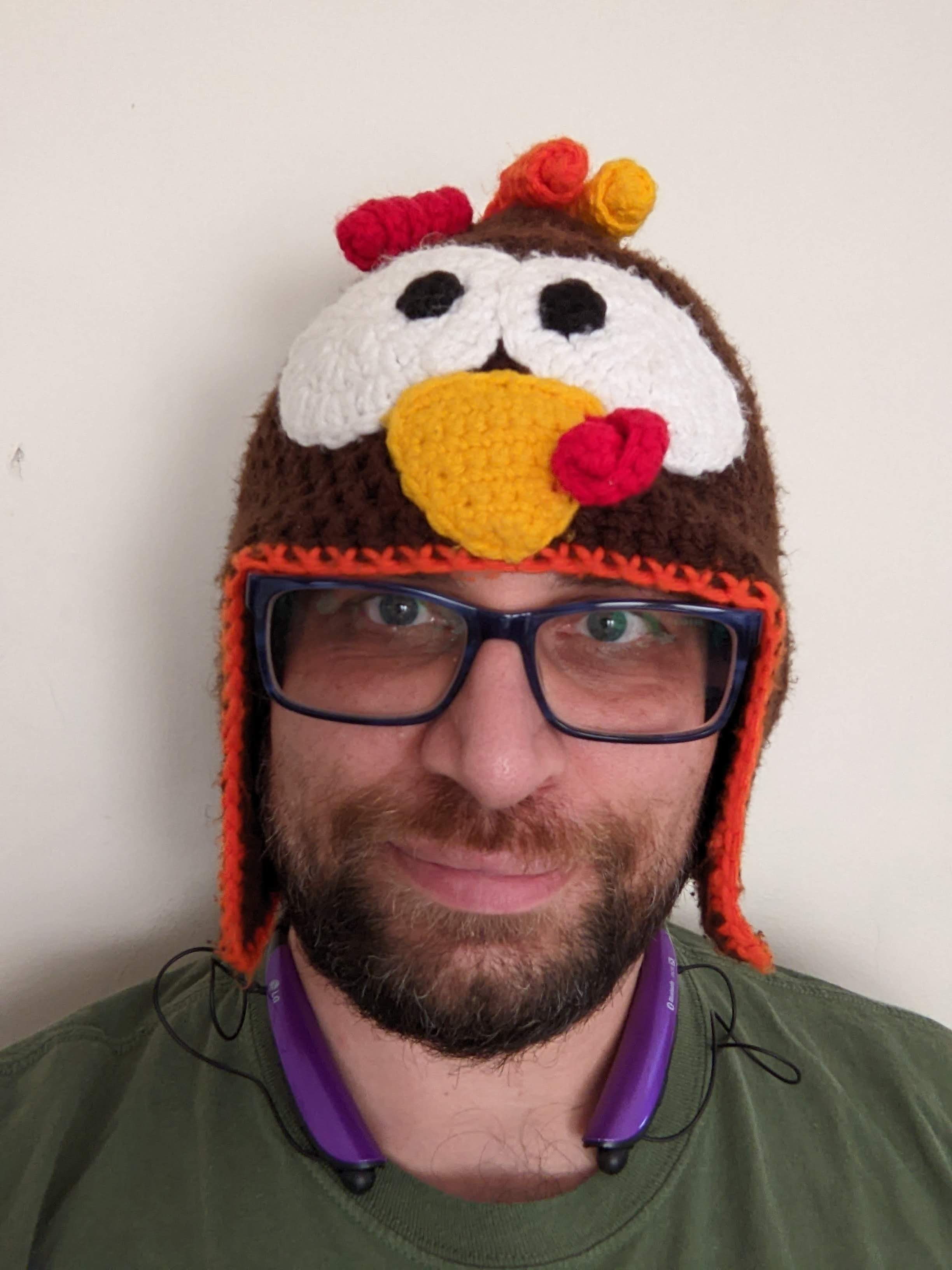The most common cause of their anxiety — the future.
Completely reasonable. I’m a Millenial and I also have a lot of anxiety about the future. Previous generations screwed us all really hard.
GenXer here. What drives me nuts is that climate change was taught to me as scientific fact in year 9, back in the early 80s.
The science was clear but collectively every government said “well, I’ll be dead by then so why should we care now”.
deleted by creator
Governments got off their collective assess and did something about the ozone layer and acid rain to the point that the problem has largely been corrected. Unfortunately, although climate change and now micro plastics get a lot of media attention, governments have since stopped trying to actually do something about it.
There is a big difference between the ozone layer, acid rain and climate change.
Ozone: Required the move to different refrigerant gasses and implement measures to stop old cfc’s being accidentally released.
acid rain: Required the use of low sulfur fuels.
While both were costly they were minor in comparison to climate change emissions.
The problems were incidental to the industries involved and not a something that had to happen for the industry to function.
And the big one, they industries that were required to change could profit from the change.
The complete opposite for co2 emissions.
There is no way to burn coal or oil without producing co2. So there was zero incentive from the companies and countries that profit from these industries to even look at solutions . Let alone implement them.
The difference was that Ronald Reagan had had skin cancer so he actually took it seriously and listened to the scientists.
Conservatives never believe anything until it effects them. Sonder is a foreign concept to them, along with empathy. Out of sight; out of mind.
I recently read a study about micro plastics that fairly well substantiates tires as their most of prolific source.
Think the media is gonna run with that? What would be seen as an attack on car culture itself, fuck the science or concerns of health effects. Micro plastics in the clouds, in the Arctic, in the placenta…
I’m not holding my breath.
There is an easy fix for quite some amount (60%) of the microplastics generated from tires: install a vacuum sucking the stuff in.
I hope you’re joking and just bad at jokes.
Millennial checking in. School system pivoted to Acid Rain and deforestation as the main environmental we would face. Oh, and El Nino, seems like that was happening every year of my life as a kid.
We’re beginning to feel same way for anyone over age 60.
Source: Below 35 y/o
Not to mention all the shit we went through already.
I can tell you (professionally) that the people who saw less anxiety during the pandemic were people with severe anxiety. Statistically.
I can tell you personally it was because we could say, “Something catastrophic finally happened and I’ve been preparing for this my whole life.”
deleted by creator
I have serious anxiety about getting up, leaving the house, and other ‘now’ things.
deleted by creator
Depression is just time travelling anxiety
Juuust gonna drop this here again
@ClimateAnxietySupport https://kbin.social/m/ClimateAnxietySupport
The most common cause of their anxiety — the future.
Anxiety about the future is not an anxiety disorder. If almost 2 out of 3 Gen z has anxious intrusive thoughts so bad that they cannot go to school, work, have any kind of healthy interpersonal relationships, etc then the article would have a point, but I don’t think that’s the case. I have more faith in the next generation than that.
I know things are bad and folks are rightly apprehensive about the future, but that is not an anxiety disorder. Anxious thoughts doesn’t mean you have a disorder, it means you are alive and aware of your surroundings.
Some of this next generation will turn their distress about the future into eustress that motivates them to fix it (as long as they don’t give in to defeatest takes like in this article).
Well this might be the content of my anxiety (what I worry about) but it sure isn’t the cause (my lifestyle).
Rejoice in the fact that you’re living a higher quality of life than the vast majority of people ever to walk the earth.
For now.
deleted by creator
Honestly did not think we would have nuclear war make a comeback so quickly on top of climate change
Which will fuck us first: global warming or nuclear winter?
From everything that can be said about the current world situation, this has to be my favorite way to express it
This article is terrible. First off, where do they get 60% from?
They link to the wrong research. The research they link to is a survey of people who already have anxiety. If you look at the research of the actual survey of the whole sample, not just those with anxiety, (here), it says that 42% have a diagnosed mental health condition, which includes an anxiety disorder amongst other disorders like depression, ADHD, and so on.
90% of the diagnosed conditions (90% of 42%) is anxiety, which would mean the actual number for only anxiety would be 37.8%.
78% of those 42% (32.76%) have depression as well. So a lot of those people with anxiety also have depression.
So the actual title should be 38% of Gen Z have an anxiety disorder. Which is only a bit higher than the total population.
According to large population-based surveys, up to 33.7% of the population are affected by an anxiety disorder during their lifetime. https://www.ncbi.nlm.nih.gov/pmc/articles/PMC4610617/
Let’s also not pretend that older generations arent likely wildly under diagnosed because of stigma and lack of any resources. That means Gen Z may just have a totally normal amount of anxiety.
deleted by creator
That’s true. From the same study that gave the 33.7% lifetime prevalence, they have 21.3% annual prevalence (those who experienced the disorder in the 12 months before the survey.)
There was no point prevalence (right now) on the study. So maybe it would be lower?
But the study from the article with the 38% figure provides no peer reviewed research. They are a data management firm that conducted a survey.
The other stats come from actual research with stringent methodologies with a much larger sample (9000 compared to 1000 for the data firm).
I think the point is unless they had done the same survey at a population level to compare the numbers between Gen Z and the whole population, there’s no way of knowing if 38% is high or not. Never mind that the article posted here says 60%, which is completely wrong.
Whilst everything else of your post is on point, the last bit is not really applicable: you can’t really compare “lifetime” probability (i.e. for the age range 0 - life-expectancy) of getting something (i.e. “be affected by”) with the probability of actually having something (i.e. not just be affected by it at any one point but rather being now suffering the effects from it) whilst being in a specific age range (roughly 10 - 30, a subset of the lifetime one).
It might be possible to derive the second one from the first if knowing the statistic distribution in relation to age of that disorder and the average duration of the condition, but as it stands there those 38% aren’t comparable to those 33.7% as they’re statistically quite different things.
That’s not how mental health stuff works. People do not really develop anxiety in adulthood like that. You won’t wake up one day and have suddenly developed a mental health disorder. Mental health disorders require both genetic predisposition and real-life experiences, but those experiences really only affect someone in that way before their brain is fully developed.
To be fair, we have a much better understanding of mental disorders now. Back when I was little, people basically fell under four categories (and these terms aren’t my choosing, just what it was back in the early 80’s): gifted, normal, slow or retarded. That was the extent of our understanding. At least based on my personal experience in an american public school system. I’m sure for older generations things were even more misunderstood.
It’s also important note that people have always had mental disorders. We just didn’t know it was a mental disorder. The main difference is that we know what to look for and we can diagnose the disorder and assign treatment.
This is the same reason people get the ignorant idea of “vaccines cause autism” and then point to the number of people with autism…not realizing all of these new terms aren’t 100 years old. Same with cancer…must be the clean water that keeps our teeth healthy past our 30s…
And some always want to attribute the increase in gun violence to an increase in mental health issues, even though most of those issues have always been there. It’s never the increase in availability of weapons in society.
Because it’s not like you weren’t able to literally order actual machine guns out of the back of a magazine back in the 60s…
So, you think the US is just that much more mentally ill than every other developed country in the world? Of course not. The difference that stands out about the awful gun violence in the US is easy access to weapons.
So, you think the US is just that much more mentally ill than every other developed country in the world?
Very much so yes.
People who are thriving and are mentally well do not just up and decide to kill dozens of people, whether it be with a gun, knifes, improvised explosive, or driving a truck through a crowd.
Access to mental healthcare of literally any sort here is basically impossible for the majority of people. Even as someone living in an area with a two huge medical campuses and health insurance, it still took many months for me to even get an intake appointment to see a doctor, just get a recommendation to be seen by a psychiatrist, for an already diagnosed medical issue that I just needed a script refill for, all because my last psych left the state.
Even then, to be able to see them at all, I’m basically in a huge pool with a bunch of other patients and don’t even work with the assigned psychiatrist directly. If I wanted to see a psych 1:1, I’d have to wait even longer (months), until they had an opening.
Now, I can manage okay without medication. But if I had more serious issues and didn’t have the resources to basically go anywhere I need to in the area to make appointments (car, flexible work schedule, etc), I’d be absolutely fucked. Seriously, I have every possible benefit going for me to get care, and it’s still a massive PITA.
I’m sick of people saying that access to guns is the problem, not because I don’t think it plays a part, but because it diverts attention away from just how absolutely atrocious mental healthcare and social support overall is in the USA. It’s a lazy “solution” to an extremely serious problem, and people would much rather brush it under the rug and take the easy way out while screwing over millions of law abiding citizens, than face the reality that we refuse to take care of our population and let these issues fester until people go on killing sprees. Then when the news breaks, everyone goes on and on about how many clipazines and Assault Rifle-47s the killer had, and rarely the numerous attempts they made to seek mental health that were completely ignored.
Growing up in Colorado, I have a very personal connection with mass shootings. I was just across the street from the Arapaho high school shooting back in 2013, hearing the gunshots and having to shelter at the store I was at. Later to find out it was committed by a student with a recorded history of serious violent outbursts going back to when he was eight, and multiple serious incidents for close to 3 months prior to the attack where he was looking up pictures of mass shootings and making diary entries about plans to shoot his teachers. Columbine was an ever present specter while I was in school. I had a classmate kill himself with a firearm in high school, and watched my teacher break down into violent sobbing in our class the next day because he ignored signs in the journals we had been making for the class.
Time and time and time again, the story is inevitably the same with people committing these acts having shown serious behavioral issues for months if not years, and them going almost completely unadressed. Yes, you could remove the firearms and possibly limit the damage, but when the Arapaho shooter also had brought molotov cocktails, and they were using propane tanks as bombs at Columbine, I seriously question how much of a solution it really is given the underlying issues.
I want to thank you for your response. I’m sorry that you’ve had scary personal experiences with mass shootings. That’s the worst.
That said, I very much disagree with your assessment. Having spent many years of my life overseas in various countries and cultures, I can confidently say that the US is not more mentally ill than other countries. It’s a human condition in all countries with different responses. Is the US mental health system great, no. But it’s no better in most other developed countries. Some are much worse.
But other countries don’t have the epidemic of gun violence that we see in the US. The only significant differentiator is the easy access to weapons. I know gun-rights supporters don’t want to see that, but that doesn’t mean it’s not there. It is.
What is removed?
You’re on an instance which censors some words, use another instance to see it
I didn’t know there were instances that censor posts like that. Thanks for the explaination.
lol fuck that what instance doesn’t do that so I can go there?
I know Lemmy.ml does censor things, most others should be uncensored
It’s the r-slur
For those that can’t see the post. The word was not used in a way intended to be hurtful. Just explaining how there was a time when it was in use, along with a lack of understanding about mental illness.
Okay but I’m unhappy with my ability to function through my life and so is a huge percentage of people my age, and we’re here now.
Shit, I’m right there with you.
<3
If more than half of a population has it, is it really a disorder? The disordered thing is clearly our society, but rather than fix that we medicate all the people having a hard time living in such a world.
Edit: looks like this headline isn’t true.
Article headline is bullshit.
Their source doesn’t say 61% of Gen Z.
It only surveyed people who already have anxiety.
So it’s 61% of gen z with anxiety have a official anxiety diagnosis from a medical professional.
Thank you, I’ll update my comment!
And it’s been proven that medication doesn’t necessarily work. Over the years, medication has honestly messed me up more than it’s ever helped me, in permanent ways.
GenX
I mean we grew up with boomer parents. Of course we are all anxious and what not, we just had a few decades to cope with it.
Is it a disorder if most of them have it? Wouldn’t that make the anxious the baseline and 40% of them are weird calmies?
It’s a disorder if it affects your ability to function in society.
But maybe we need to change society so it didn’t make everyone so anxious.
Why wouldn’t one be anxious about impending environment crisis and inability of institutions to act quickly enough.
Because it is a slow moving event that will unfold over the next century.
It cannot be both so incredibly anxiety causing and also lacking in any urgency at the population level simultaneously.
I think at least 60% of people would beg to differ.
Also, where do your data from? We’re seeing the impacts right now and although we still have a chance of minimising the impact we’re still emitting GHG at dangerous rates.
As a climate activist, my data comes largely from the NOAA/EPA as well as independent think-tanks.
The poster you’re responding to is correct.
deleted by creator
Pretty sure as a literal climate lobbyist, I know more about this than you
deleted by creator
I did not say I am in a think tank. I said we use some think tank knowledge (generally for highly localized policy advocation), while relying on world standards for climate studies
If you have an issue with the world’s chosen standards, perhaps write to the UN or your country’s UN ambassador.
lobbyist
Lol, lmao even.
You can join too! Almost certainly a local chapter in your area and they provide you everything you need.
Free to join and you are welcome to dictate your level of participation
Astroturf harder for me daddy.
You don’t know what astroturfing is
Pretending to be a climate activist on the internet while down playing the consequences and severity of climate change? Smells like astroturfing to me. If you’re not doing it for a pay cheque then I worry for your mental health.
I’m not downplaying consequences, but being accurate about timelines.
Most serious impacts of climate change that is already in-process won’t be felt til 2100+. We’ll hit 1.5C by 2030 and 2C by 2050, but that’s nowhere near catastrophic - that comes if we continue to not do things because the changes are slow.
Not understanding the timeline is what feeds into climate denialism. It’s like their #1 talking point
Next time you’re confused just ask for clarity.
Slow moving event? It seems you’ve already gotten used to quarterly news reports of wild fires, floods, cyclones, storms, drought and mass animal graves be it terrestrial or aquatic life forms. Humans are losing their homes and lives to these events routinely. There’s already a term coined for such climate refugees, making all the countries nervous about the future.
Even to generously concede your statement… you’re referring to the course of their lifetime, that century. By the end of which, apocalypse.
Not really, the apocalypse scenario was averted by the banning of CFCs, which were a much worse greenhouse gas that were on track to cause a 4+ degree rise instead of the 2 we’re on track for now.
Also, it was an apocalypse scenario because the damage it was doing to the natural atmosphere was liable to pair that temperature rise with everyone getting every kind of skin cancer imaginable from unfiltered solar radiation.
Watch “The Human Future” by Melodysheep, it gives a real perspective moment on just how hard life would be to dislodge even in a major die out scenario.
An event which wipes out 99% of all humans alive now would still leave the earth populated by 80 million people, which is a larger number than the total global population was for a massive stretch of our history.
Glad to hear that you wouldn’t describe a 99% die off of the human population as apocalyptic, let alone all the life not able to adapt to rapid change. Whilst the remaining 1% sits in the wreckage of a blighted environment now incredibly hostile to life. Let’s hope the remaining 80 million are fairly centrally located and don’t just starve, freeze or kill each other in the wasteland, to round out that non-apocalypse.
Don’t forget to have kids, Gen Z, we need more fodder for the impending mass death event.
Tell me you drove your literature teacher into day drinking without telling me you drove your literature teacher into day drinking.
Get off the internet and learn some reading comprehension skills angsty.
Beautiful.
I just think they lack any real issues. I grew up poor and constantly insecure. I had real issues, and it has given be perspective. I’m grateful for every day I have food and shelter. I don’t have a lot of bandwidth to care about stuff which might affect people 100 years from now.
Of course I’m glad that they grew up with such privileged lives. I just wish they’d care a little more about poor people today.
You mean like the threat of the end of democracy? Or the housing crisis? Or the student debt crisis? Inflation (which is largely just greed)? Increasing wealth disparity? Frozen wage increases? Loss of pensions? Threats to social security? Medical costs increasing and insurance paying out less and less?
Have empathy, and look around. Just because you are OK now doesn’t mean everyone is.
I mean, plenty of Gen Z end up on the streets too, just like any generation, because housing availability and income is just getting worse for poor people. Anxiety issues are fairly associated with poverty.
Most the young people I know (California, USA, I’m a young millennial) are precarious, and most feel precarious. They are also watching baby boomers (sometimes their parents and grandparents) end up on the streets in high numbers, but also don’t have the extra income to put into retirement or get a healthy savings to secure a future for themselves, much less help their ailing family members. Their health issue incidence is high, and the availability of care for those health issues is low and very expensive. People living off of Gig apps and part time jobs (because jobs with benefits are unavailable without a college education, and sometimes even with). If they live separate from their family most of their income goes to rent.
And climate change isn’t something that affects people 100 years from now, it affects us right now in certain zones. The number of homes destroyed/damaged in various disasters each year where I live has gone way up, and a lot of the people who are displaced end up on the streets or in ever growing slums/camps. There’s a general sense that the future will be worse than the present, which makes present struggles feel worse. People turn to drug use, sometimes to self medicate for physical and emotional issues. People don’t want to have kids, because they don’t see a future for those children, and don’t have the resources to provide for them.
I agree there needs to be more solidarity, especially with the most impoverished. Part of the struggle is worsened by atomization and individualism, and propaganda deriding the impoverished.
Is it really a disorder if it’s just a normal response to circumstances?
I’m Gen X, not Gen Z, but I think it’s definitely a normal response to circumstances. Retirement has gone from “something I’m going to do someday” to “suddenly on the horizon.” However, my finances aren’t lining up with how much I need to have to retire. (I’m not alone. I saw an article recently that said under 20% of Gen X-ers have enough saved to retire.)
I’m definitely feeling anxious about this. I don’t want to be 80 and working a full time job so that I can pay my monthly bills because my bank account ran dry and the Boomers wiped out Social Security.
It’s going to take everyone going to the streets and demanding social security reform. Americans need to stop being so complacent
Good luck, the time to do that was when you were 18. At this point you’ll be fighting against the people who won’t benefit and the people who probably would benefit but certainly don’t want to pay for it.
It’s a disorder if it gets in the way of your making profits for your masters.
Common and normal and valid response doesn’t mean healthy
Body temperature increase is a normal reaction to a viral infection, doesn’t mean you won’t die if the temperature keeps rising until you’re cooked through like a ham though
Death in service of [insert country] is it’s own reward! Life in failure of [insert country] is it’s own damnation. /s
If someone is so addicted to social media that it caused intense mental harm then they get what they deserve.
These dopamine addicted cocaine-rats who can’t stop scrolling do not have my sympathy.
Before you have a meltdown, we often hold religious followers accountable for their religion’s fuckery but we never hold social media addicts for their own behavior. Dumb.
ITT: Boomers gaslighting people who have anxiety
I’m Gen X, not Gen Z, and I definitely feel like my Boomer parents pushed a “if you’re having mental health problems just shut up and deal with it quietly” attitude. When I told my father that I take medicine for anxiety, he thought I should stop taking it and just “stop feeling anxious.” Like there’s a big Off Switch to my anxiety that I forgot to flip.
Trust me, I wish it was that easy. I’d be flipping that switch off and duct taping over it until it couldn’t be turned back on. Sadly, it’s not that easy.
They were born into an absolute shit show, maybe don’t blame them too much.
Stop reading crisis media.
Turn off ALL notifications on your phone
Disconnect occasionally.
Or just weed. Copious amounts of weed.
I don’t think putting your head in the sand makes all the world’s problems go away, just makes you ignorant and less prepared to handle them.
Reading about world problems without acting on them will just give you anxiety.
Agreed. Paying attention to the local and national news is important. Ignoring the 24 hr crisis news cycle is what I’m referring to.
I know that climate change is happening, am current on recent studies discussing causes, and read about what I can do personally to help. But I don’t watch every broadcast that blame every single possible situation on it, and then continue to harp on it constantly for days on end.
It doesn’t, but it’s also not healthy to dwell on it all the time. People definitely need “down time” where they silence their phones and do things that they enjoy.
In no way is this a “cure” for anxiety, but it can help in many instances.
Take it or leave it, hypervigilance and anxiety or head in the sand and peace.
Is there like some middle ground. Like I want to be prepared for what could happen, but don’t want it to control me where I don’t do anything. Kind of struggling with that right now, to be honest.
Stoicism teaches that you should strive for virtue, but cannot expect any particular outcome. You can’t have your happiness and contentment depend on factors outside your control, or you will inevitably be unhappy. Try to be virtuous, try to do the right thing for the right reasons, and if the outcomes are not what you hoped for, then at least you tried. Stoic virtues are wisdom, courage, justice, and temperance.
That’s just called being normal
Like, I’m aware that the world is fucked. I can’t really change that, though I can do my part.
And the world is not irreparably fucked. Just probably irreparably fucked during my lifetime.
We’ll get it together eventually.
But the point is, why stress, it doesn’t help anything. Don’t worry about it. Either take action or don’t.
Well, I can’t speak to a middle ground, but I can say that my anxiety is at its worst when I stall. If I examine what gives me anxiety and take steps to prepare for it, that alleviates the panic.
I don’t know what eats away at you so I can’t give you the perfect guide. Only you can say what causes you anxiety, and only you can prepare yourself for it.
Yeah well, I used to use weed for that and now it too gives me anxiety. Won’t touch it unless it’s a single small hit or I got hydroxyzine, CBD, something
Hyrdroxyzine for the win. Cut my coffee intake and I’ve been much better lately about my weed and anxiety combo. Best of luck.
I feel SO much better since cutting out the caffeine. It’s a vicious cycle. It gives you a little emotional boost for a couple of hours, then you’re just left feeling on edge for the rest of the day. Then it fucks with your sleep, and you need caffeine just to get back to baseline the next day.
Also consider fasting for 1 day a week (32 hrs). Its quite healthy for the body, but I also find that my brain tends to lose focus on all the nebulous dominating anxieties (work, money, school, relationsips, wars, the fact that there will never be any more episodes of Stargate SG-1) and instead it focuses on what it percieves as a more pressing threat, starvation. Which you can easily rationalize away because theres food everywhere. Gives me some mental relief and clarity for a day and its a good form of self discipline
For me it’s mostly related to my autism among other factors.
What about those of us who can’t use weed because THC interacts with medication?
Exercise all the time
cries in chronic pain condition
That’s rough. Do you have to work FT?
Yeah. I work a great desk job in what I went to school for, so work isn’t rough on my body for the most part aside from typing killing my hands. I am going to see a specialist in April to get checked out to see if I had any comorbid conditions develop.
You see 4 options. You fixate on one.
Not much else to be said.
I wasn’t asking for your opinion, dude
Wasn’t an opinion.
Well, its actually 2 options. It’s phrased to do all three things, “OR” the weed. So…you’re wrong. Nothing like a technicality.
deleted by creator
Let me share a piece of advice I heard from my father:
“It’s not a problem, we should really be worried about why NASA is covering up planet X”
Checkmate climate anxiety. Your move…
For the life of me, I cannot grasp what you intended by this.
I think it’s making fun of their father. Sounds like something my family would say unironically.
https://youtu.be/nz2OOcPJxcU?si=Uj5yxxFWIgOihvL5
So the truth is less they’re hiding it and more a combination of “we can’t see shit!” and “we have no idea how big or far away this thing would have to be to even begin looking for it!”
I hope they find planet X because it might attract Elon Musk.
deleted by creator
we surveyed 997 Gen Z who deal with anxiety and asked them how it impacts their lives.
we surveyed 997 Gen Z who deal with anxiety
who deal with anxiety
No, I’m sure it’s representative.
deleted by creator
I do have to wonder how these figures compare to older generations and to what extent underreporting due to stigmas around mental health could be corrected for between generations.
(I hope this already comes across, but I absolutely don’t mean to diminish the severity of the mental health problems faced by Gen Z or anyone else.)
I, for one, did not take your comment in a bad light. I’m in my late 40s, and most of my peers that I’m comfortable with have anxiety or some other mental health issue, myself included. I’m not sure what generation classification I fall into, but it really doesn’t matter; it’s not a generation specific problem. I guess I don’t really have a point here. Maybe that it’s a problem of the times rather than DOB. Or I’d guess 15% of people don’t report.
Yeah, both my boomer parents 100% have anxiety with periods of uncontrollable panic attacks, but they refuse to acknowledge this is the case. There is definitely a stigma when talking about mental health for their generation.
but I absolutely don’t mean to diminish the severity of the mental health problems faced by Gen Z
I, for one, do
Half of y’all are just saying you have mental issues because you’re in the “it’s not a phase, mom” tween phase.
Don’t get me wrong, 30% is still a staggering number, but 60% is just ridiculous. You’re fine. Chill tf out.
Article is bullshit anyway.
Their source doesn’t say 61% of Gen Z.
It only surveyed people who already have anxiety.
So it’s 61% of gen z with anxiety have a official anxiety diagnosis from a medical professional.
You know a substantial number of Zoomers are not teenagers and haven’t been for many years yeah?
I’m not sure why it has to be a controversial take that the first generation to grow up with unfettered internet access and subsequently the most awareness of any and every global crisis, has a disproportionately large number of people with anxiety disorders. It’s not like it’s all or nothing either, you can have mild-moderate anxiety and still have a diagnosable disorder
the first generation
How old exactly do you think millenials are?
Younger folks in there late 20s older ones early 40s?
Meaning that the older half of the generation didn’t have internet access at all hours of the day during their childhood since home computers were a rarity until the mid nineties and those were generally shared with the whole family. Vs. Personal devices with internet access (first smartphones, Gen 1 Ipods, cheaper and more common home computers) which Gen Z children en mass have had since the early 2000s, which is when the oldest Gen Z’ers were 5-6.
There is Grey area in the few years where the generations changed and it’s basically indistinguishable but don’t even try to make the argument that someone born in 1986 had the same childhood as someone born in 2000
Fine. Whatever. Let’s just say 90s kids then.
Point still stands. Gen z is not the first generation to grow up with computers.





















